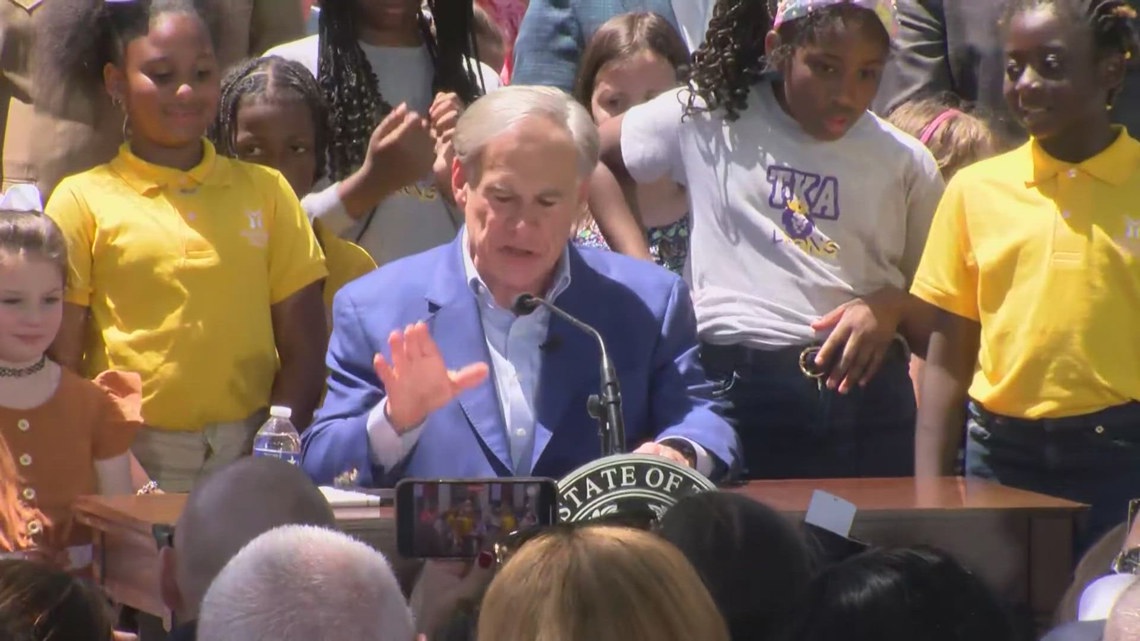
Gov. Abbott signed his longtime legislative priority into law this year, following approval by lawmakers.
SAN ANTONIO — Texas lawmakers’ embrace of school choice this year answered the long-running question of whether the initiative would ever be approved in the state.
But it’s likely sparked a whole host of new questions for parents across the Lone Star State who want to enroll their children in private schools but don’t know where to start, how likely they are to get approved or how much it might cost. To help provide answers, the nonprofit San Antonio Charter Moms – which works to empower and advocate on behalf of parents – is organizing four town halls in the coming weeks to answer questions about the legislation, who qualifies, how special education students are impacted and other topics.
The first will take place Wednesday from 6 p.m. to 7 p.m. at the gymnasium of Saint Mary Magdalen School (1710 Clower St.). You can register online here.
The other town halls are scheduled for:
- July 10: 6-7 p.m. over Zoom
- Aug. 21: 6-7 p.m. in person, location TBD
- Aug. 28: 6-7 p.m. over Zoom
San Antonio Charter Moms says the information sessions are for parents, but also caregivers and potential voucher vendors.
About school vouchers
Texas’ $1 billion plan to create Education Savings Accounts – or ESAs – was approved by lawmakers in late April and signed into law by Gov. Greg Abbott days later, fulfilling the governor’s chief legislative priority. It allows families to use public money to pay for private school tuition, marking a victory for school voucher proponents nationwide that was cheered on by President Donald Trump.
Abbott, in an online statement made after lawmakers approved Senate Bill 2, called it “historic school choice legislation” that will pave the way for “education freedom” in Texas.
More than 30 states have implemented some sort of voucher program in the U.S. But Texas will be among the largest and seen as a major victory for proponents who hope to push a similar effort on the federal level.
In the first year, the program will be capped at $1 billion, which is expected to provide funding for up to 90,000 students. By 2030, the program could grow to nearly $4.5 billion per year. The program allocates $10,000 for students who are accepted and $30,000 for students with disabilities; homeschoolers can get up to $2,000 for approved expenses.
There are factors that determine exactly who gets that money, however.
“There’s still a lot we don’t know about specifics,” Inga Cotton, San Antonio Charter Moms’ founder, said in a release. “I have a lot of sympathy for folks who are feeling stressed or uncertain about all this change because it does feel like we’re stepping through the looking glass into a different world.”
Though the bill has been advertised as beneficial to families who could not have previously afforded to send their children to private schools, opponents have argued it is driving money, resources and students away from public schools. Critics also argue the state will be putting money back into the pockets of wealthy families whose children are already enrolled in private schools.
San Antonio’s new mayor, Gina Ortiz Jones, referred to the state’s school vouchers as a “voucher scam” while on the campaign trail leading up to her election this month. She has said she wants to “shore up” public education in the aftermath of Senate Bill 2’s passage.
In addition to Senate Bill 2, Abbott also signed into law an $8.5 billion package to fund public schools, marking the most significant increase in funding for public education in the state’s history.
Copyright 2025 Associated Press. All rights reserved. This material may not be published, broadcast, rewritten, or redistributed.
